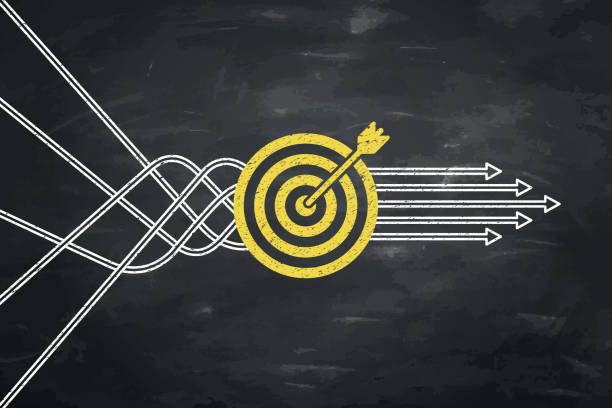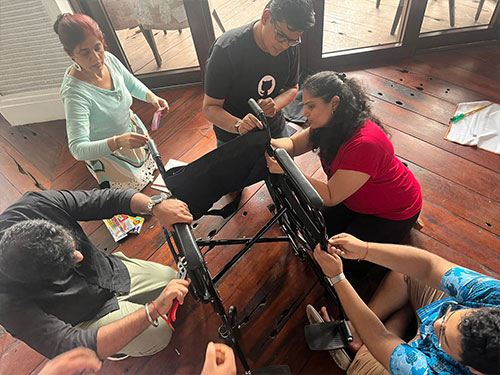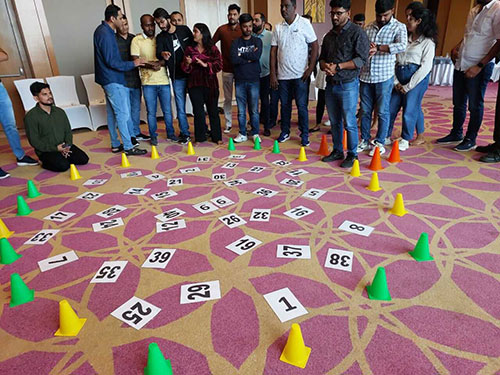In today's fast-paced, ever-evolving business landscape, a company's success is often determined by the strength of its teams. Whether you're a startup, a growing business, or an established enterprise, your team plays a pivotal role in driving innovation, fostering creativity, and delivering results. However, to maximize the effectiveness of your teams, it's essential to understand the unique strengths, preferences, and roles that each team member brings to the table.
At The TeamEx, we specialize in team building and development, helping organizations create cohesive, high-performing teams that thrive in collaboration. One of the core principles we advocate for is recognizing and leveraging diverse team roles. When each team member's strengths are aligned with the right responsibilities, productivity skyrockets, and your team will be better equipped to handle challenges and seize opportunities.
In this blog, we'll explore why understanding team roles is critical for success, how to identify them, and most importantly, how to leverage them for maximum effectiveness.
Why Understanding Team Roles Matters
Every individual brings a unique set of skills, experiences, and personality traits to a team. These differences can either be a source of conflict or a catalyst for creativity and innovation, depending on how they're managed. Here's why understanding team roles is crucial:
Enhanced Collaboration
When team members are aware of each other's strengths and weaknesses, they can collaborate more effectively. This awareness leads to better communication, reduced misunderstandings, and smoother workflows.
Optimized Performance
Leveraging the right team roles ensures that tasks are assigned to those best suited for them, leading to higher efficiency and productivity. It also empowers individuals to focus on what they do best, increasing job satisfaction and reducing burnout.
Better Problem-Solving
Diverse perspectives lead to more innovative solutions. When you recognize and embrace different team roles, your team can approach challenges from multiple angles, leading to more creative and well-rounded problem-solving.
Higher Employee Engagement
When team members feel like their skills are valued and they’re contributing in meaningful ways, they’re more engaged and motivated. This increases both morale and retention.
Types of Team Roles: Identifying Strengths and Preferences
Understanding team roles begins with identifying the different types of roles that exist within a team. Here are a few common categories based on popular team role frameworks such as Belbin's Team Role Theory:
1. The Leader (Coordinator or Shaper)
Leaders are visionaries who keep the team focused on the bigger picture. They ensure that goals are clear, and everyone is on the same page. Effective leaders are great at decision-making and motivating others, but they also delegate tasks efficiently. They tend to be strong communicators and are comfortable with both strategy and execution.
2. The Planner (Implementer or Completer-Finisher)
Planners are detail-oriented and excel at creating structured plans and timelines. They take ideas and translate them into actionable steps, ensuring that tasks are completed on time and to a high standard. Their focus on precision and reliability keeps the team organized and on track.
3. The Innovator (Plant or Resource Investigator)
Innovators are creative thinkers who bring fresh ideas and solutions to the table. They’re often great at brainstorming and thinking outside the box. While they may not always follow through with the details, their ability to generate novel ideas is invaluable in a team setting. Innovators often need the support of detail-oriented team members to implement their concepts.
4. The Analyst (Monitor-Evaluator)
Analysts are the logical thinkers of the group. They assess situations critically, providing valuable feedback and analysis. They thrive in evaluating different options and making informed decisions. Their objective approach ensures that the team stays grounded and avoids making decisions based on emotion or impulse.
5. The Supporter (Team Worker or Resource Investigator)
Supporters are the glue that holds the team together. They’re great listeners and communicators, providing emotional support and helping to resolve conflicts. Their natural empathy and people skills make them excellent at fostering positive relationships and promoting collaboration.
6. The Executor (Specialist)
Executors bring specialized knowledge and skills to the table. They are experts in a particular field, and their deep understanding can be a valuable asset when dealing with complex problems or technical challenges. Executors often work independently but can also collaborate with other team members to apply their expertise in new ways.
How to Leverage Team Roles for Maximum Effectiveness
Now that we’ve identified the key team roles, let’s explore how you can leverage these roles to create a high-performing, harmonious team.
1. Align Roles with Strengths
The first step in leveraging team roles is to ensure that the right person is in the right role. A leader should be someone who has natural authority and the ability to motivate others, while an analyst should be skilled at critical thinking and problem-solving. By aligning people’s strengths with their responsibilities, you increase the likelihood of success and improve overall team efficiency.
2. Foster Open Communication
Encouraging open dialogue and regular check-ins allows team members to express concerns, share insights, and provide feedback. This will help to identify potential gaps in team roles early on. Open communication also ensures that team members understand each other’s perspectives and are more likely to collaborate effectively.
3. Promote Cross-Functional Collaboration
While each team member should have a primary role, it's essential to foster collaboration across different functions and expertise. For example, an innovator might work closely with a planner to develop new ideas and then hand them over to an executor for implementation. This cross-pollination of ideas enhances creativity and ensures that all team roles are working toward a common goal.
4. Create a Culture of Mutual Respect
Each team role is essential to the overall success of the group. Fostering a culture of respect for each person’s strengths and contributions is key to ensuring that no one feels undervalued or overlooked. When team members appreciate each other's skills, it creates a collaborative, positive environment where everyone can thrive.
5. Provide Opportunities for Growth
Just because someone has a particular team role doesn't mean they should be confined to it forever. Encourage team members to step outside their comfort zones and take on new challenges. This not only enhances their individual growth but also creates a more versatile, adaptable team.
The Benefits of Effective Team Role Management
Recognizing and leveraging team roles not only improves team dynamics but also drives better results for your organization. Here’s how:
- Increased Productivity: When team roles are aligned with skills and strengths, tasks get done more efficiently, and the team can achieve its goals faster.
- Improved Morale: Team members who feel their skills are valued are more likely to stay engaged and motivated, reducing turnover.
- Enhanced Innovation: By encouraging cross-functional collaboration and drawing on diverse perspectives, your team will be better equipped to innovate and tackle challenges creatively.
- Stronger Relationships: Understanding team roles fosters empathy and respect, strengthening relationships within the team and across departments.
Conclusion
At The TeamEx, we believe that teams are at the heart of every successful business. By recognizing and leveraging the different team roles within your organization, you create a framework that promotes collaboration, boosts performance, and drives success. Understanding the strengths of each individual and strategically aligning them with the right roles can lead to a highly effective, engaged team that thrives in any environment.
If you’re ready to take your team to the next level, reach out to The TeamEx. We specialize in team-building exercises, training, and coaching that help businesses understand and leverage team dynamics for maximum impact.
Let’s work together to build stronger, more effective teams that drive your company forward!
Get latest insights into our new exciting activities.



.jpg)


.jpg)










.jpg)






 (1).jpg)







